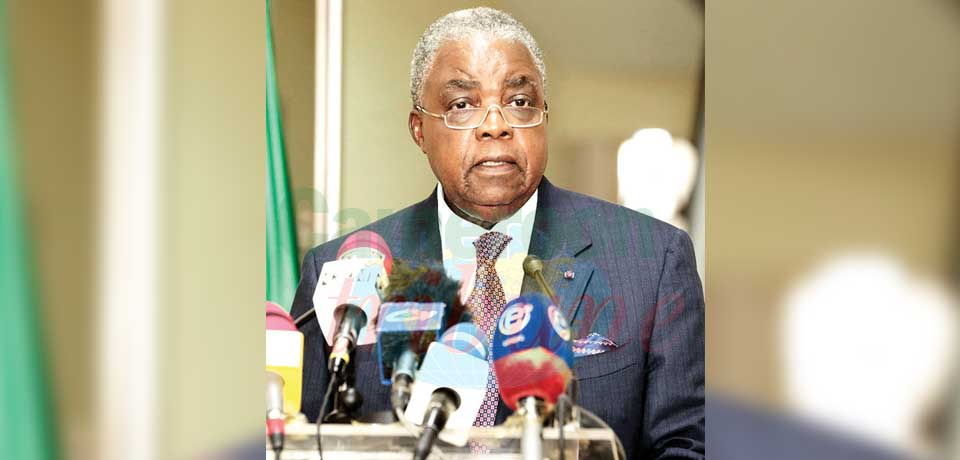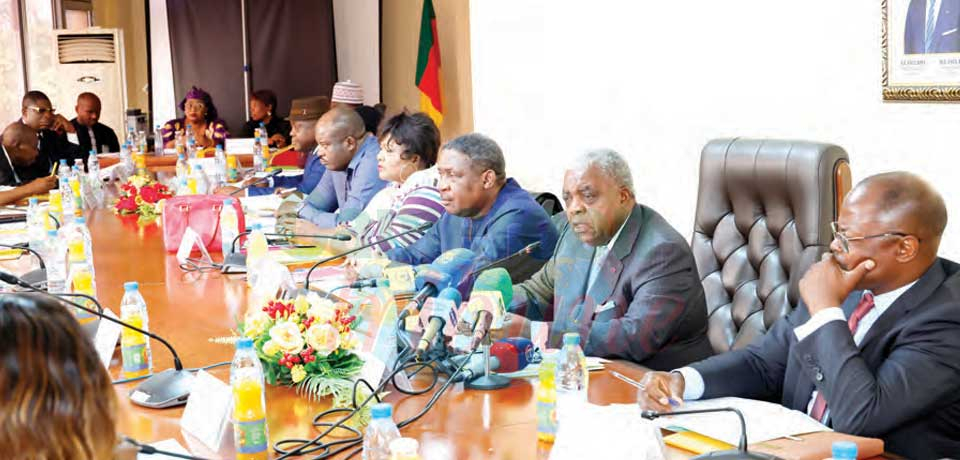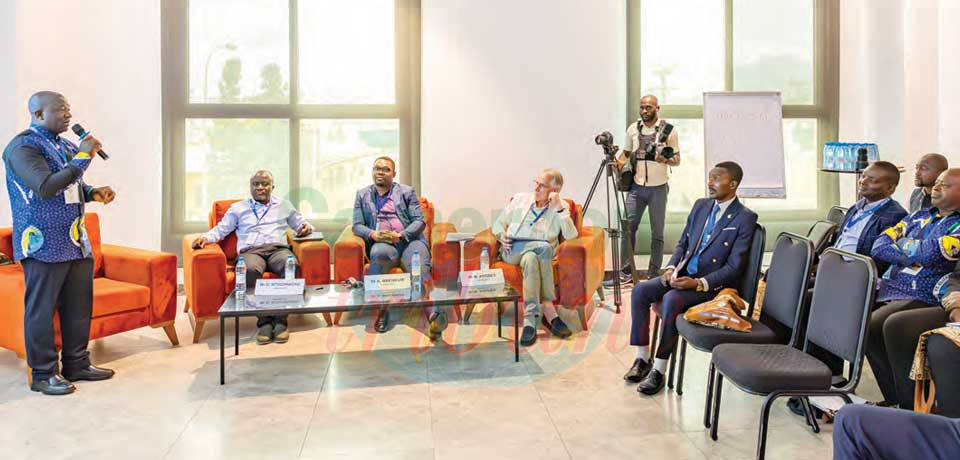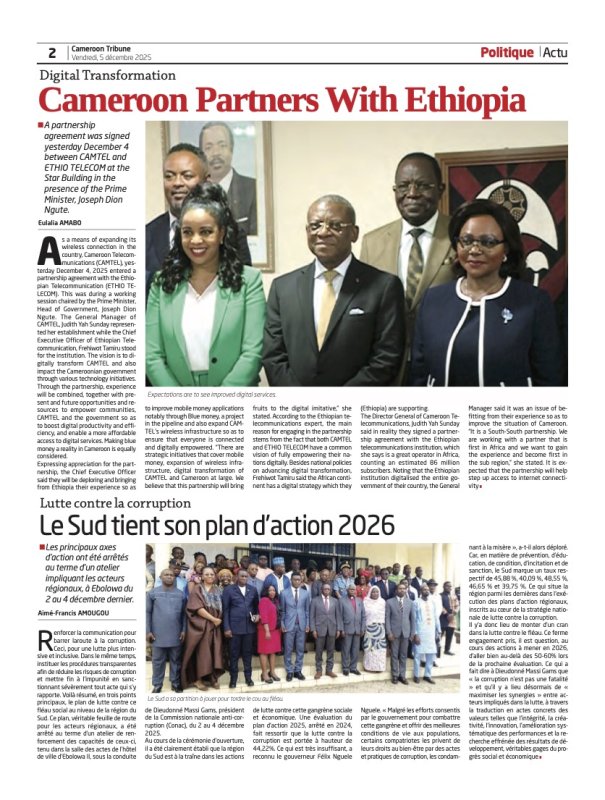World Press Freedom Day: Law On Social Communication Has Been Initiated
- Par (é) René Emmanuel SADI
- 05 May 2022 11:51
- 0 Likes

Below is the complete declaration of the Minister of Communication, Government, Spokesman on May 3, 2022.
“Ladies and Gentlemen,
As has been the tradition since 3 May 1993, Cameroon, together with the International Community, is this year celebrating the 31st World Press Freedom Day.
It is a day which, it should be recalled, exalts the virtues of democracy and the freedom to communicate, to express one's opinions and points of view, which are the foundations of the vitality and stability of any nation that is, like Cameroon, keen on promoting Human Rights and Fundamental Freedoms.
Above all, it is an opportunity for women and men of the press from all over the world to pause and reflect on the responsible practice of journalism in general, and on their working conditions in particular.
It is therefore a particular pleasure for me, to take the floor on this occasion, on behalf of the Government of the Republic, to give an overview of the issue of Press Freedom worldwide and in our country in particular.
Ladies and Gentlemen,
UNESCO has chosen "Journalism Under Digital Siege" as the theme of this year's celebration of the World Press Freedom Day.
This theme calls us to question this new technological and professional development, especially its impact on the practice of journalism, access to reliable information, and on the media economy in the broader sense.
It is indeed undeniable that the digital economy is increasingly shaping the dissemination of information through the media, as well as audience responses to the information received.
These major advances have opened up invaluable opportunities for media professionals to multiply the various channels of access to information sources, and ultimately to reach ever broader audiences around the world.
It goes without saying that such an evolution brings about new challenges, including the social role of the journalist and the media, the economic viability of such media, and, ultimately, the topical debate on the emergence of new information channels (news websites, blogs and social media in particular) in the public space, which is challenging the monopoly of the traditional media (written press, radio, television) in the production and dissemination of information.
From this point of view, Cameroon is perfectly in tune with UNESCO on the relevance of the theme chosen and the various lines of thought suggested, as well as the majors challenges to be taken up, notably the issue of economic viability of independent and pluralist media and the risk facing media professionals and their sources, in a context where the cyberspace is increasingly subject to all sorts of attacks.
Ladies and Gentlemen,
The celebration of the World Press Freedom Day this year comes in the aftermath of the organisation, in our country, of the 33rd edition of the Africa Cup of Nations.
This major sporting event, which will be remembered as one of the best competitions of its kind, organisation-wise, enabled the national and international press to work satisfactorily, taking advantage of the significant investment made by the State to organise this competition on Cameroonian soil.
Despite a context marked by the persistence of the Covid-19 pandemic, the national and foreign journalists accredited to cover this event fully played their role, providing the public with reliable information, thereby making this competition one of the most widely covered sports competitions in the world since the outbreak of the pandemic.
In this regard, we should hail the contribution of this civic-minded and responsible press thanks to which our country has been able to reaffirm its resolve to favour the emergence of a society of freedoms and democracy in Cameroon.
With regard to press freedom per se, it can be said that thanks to a highly liberal legal framework, which emanates from a strong political will, that of the President of the Republic, His Excellency Paul Biya, and which has instituted both the freedom to undertake and the freedom to publish, Cameroon has to date, nearly 700 newspapers, which are published fairly on a regular basis, over 150 radio broadcasting stations, including about fifty community radios, about a hundred television channels as well as flourishing and dynamic online media.
As far as content is concerned, there is a particularly pronounced freedom of tone, without any form of external influence apart from that laid down by the rules of ethics and professional conduct or by the laws in force in our country.
As can be seen, media men and women in Cameroon carry out their daily work in total freedom and independence.
However, in this march towards the construction of a society of freedom and democracy, which we can all boast about, a number of dysfunctions and abuses are regrettably recorded here and there.
These include, first and foremost, the transformation of radio and television talk shows into verbal bullrings and prosecution places which, on a daily basis and in the open, hand down sentences against people.
Then come the recurrence of defamation, insults and other unwarranted attacks on honour and dignity, without the victims of such attacks having the possibility to defend themselves, and the rise in hate speech, incitement to violence and hostility against the homeland.
To these, we should add groundless invectives against public officials, calls for popular insurgency and sedition, the dissemination of shocking images that offend public morals, attacks on privacy, and so on.
Along the lines of abuses that cause significant harm to the profession, to human rights and to the image of Cameroon throughout the world, those propagated by means of social media are to be placed in the front line. These emanate from a new type of unrepentant actors, driven by the deliberate desire to undermine public morality and decency, as well as the honour and consideration due to individuals and the country.
Such a situation, which shocks the collective conscience because of the violence, seriousness and brutality of the messages broadcast, is not tolerable in a Rule of Law and in a society of freedom and responsibility.
This is why the current regulatory actions must be pursued and strengthened, with a view to cleaning up and moralising the media landscape and cyberspace.
However, it goes without saying that it is only when the various beneficiary actors collectively realise the virtues of freedom of expression and...
Cet article complet est réservé aux abonnés
Déjà abonné ? Identifiez-vous >
Accédez en illimité à Cameroon Tribune Digital à partir de 26250 FCFA
Je M'abonne1 minute suffit pour vous abonner à Cameroon Tribune Digital !
- Votre numéro spécial cameroon-tribune en version numérique
- Des encarts
- Des appels d'offres exclusives
- D'avant-première (accès 24h avant la publication)
- Des éditions consultables sur tous supports (smartphone, tablettes, PC)














Commentaires